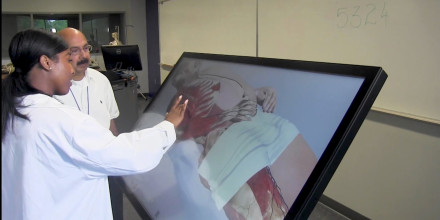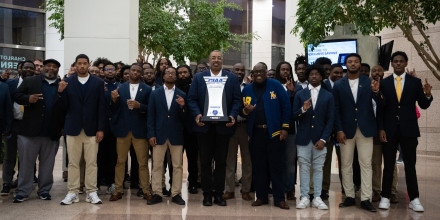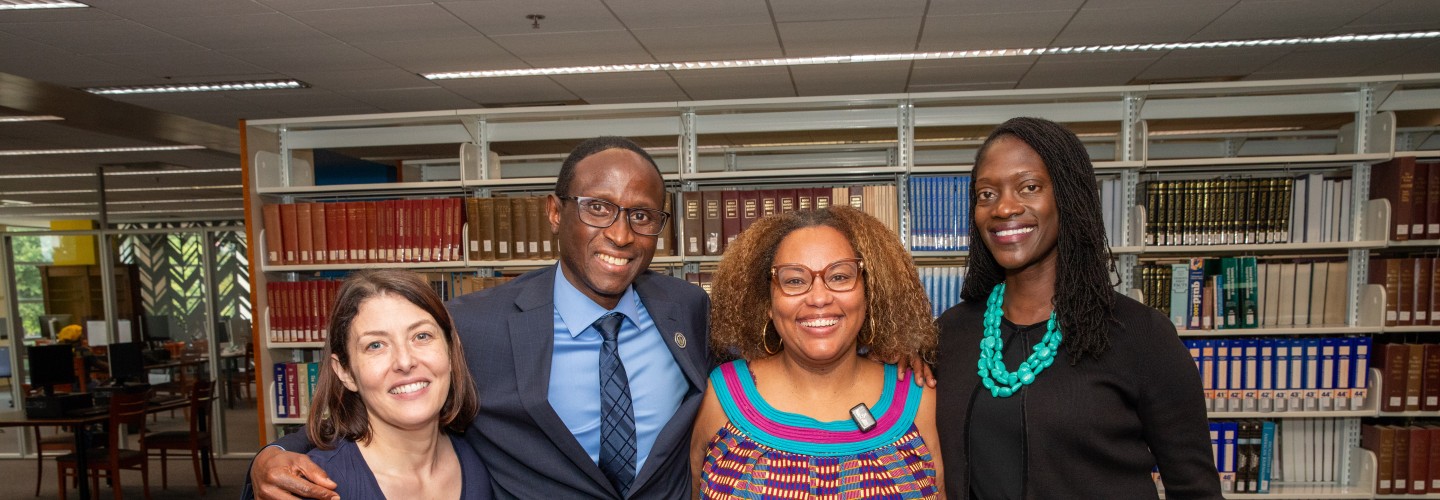
Johnson C. Smith University professor, Dr. Terza Lima-Neves, wanted to write a book that would highlight the people of her beloved Cape Verde. She wanted to move beyond rudimentary academic treatment to a discussion that would honor the musicality of authentic Cape Verdean voices. She wanted to write a book, her second, that would honor the depth of history and cultural expression of her people. She achieved that goal in her new book, Cabo Verdeans in the United States: 21st Century Critical Perspectives (2024, Lexington Books).
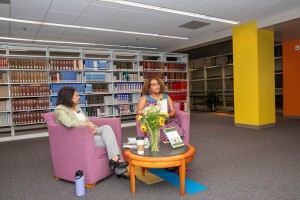
On September 24th, 2024, Dr. Lima-Neves shared her latest treatise with an enclave of Johnson C. Smith University students, faculty, and staff gathered on the first floor of the James B. Duke Memorial Library. It was a public conversation with intimate themes of race, culture, family, and community. Johnson C. Smith University professor, Dr. Jasleen Kohli, led the conversation with Dr. Lima-Neves focused on the book that has captured readers’ imaginations around the world. In fact, the book takes readers half-way around the globe to explore the people, places, and things of Lima-Neves’ birth country. She allows her readers to see the world through the eyes of herself, compatriots, and contributors. Collectively, they tackle topics of migration, racial and sexual identity, and the psychological impact of cultural communion and dislocation.
One theme, in the dynamic discussion that grabbed the attention of the audience on site, was a theme of duality of identity. One chapter of Lima-Neves’ book, Cabo Verdeans in the United States: 21st Century Critical Perspectives focuses on a Cape Verdean-American who must confront sexual identity and negotiate, at times, conflicting identities. In a moment of self-reflection, Lima-Neves confessed to juggling “the duality of being born in the US but of a Cape Verdean heritage. I felt like a person suspended in the Atlantic Ocean, not quite here, not quite there."
Still, there is stability in belonging, and Lima-Neves’ book captures the power of belonging within a clearly defined cultural community. The calling cards to community-belonging can be rooted in food, she explains – like the succulent Cape Verdean chicken, savory beans and rice served in the reception just before the book event. Lima-Neves explained how community can be rooted in language, whether a standardized language or a hybrid crioulo, Afro-Portuguese mix. Identity also can encompass space and place, Dr. Kholi revealed. Lima-Neves concurred, explaining how immigrant people offer a complex choreography when traveling home. "We are a people of movement, a people of heart.” In her youth, Terza moved from Cape Verde to Rhode Island with her family. With an estimated 500,000 Cape Verdeans living in the United States, with the majority residing in New England, Lima Neves learned to create an American home away from home.
“My husband says, ‘home is where you and the kids are.’ Home is where I feel joy, in my classroom. Home is at 12:00 and 1:30. Home is at our home in Charlotte, the house we have built. Home is in my grandmother's lap putting my hands through her hair. With her I feel free. "
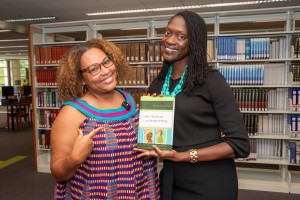
Movement, in immigrant cultures, can be cyclical. Dr. Lima-Neves says her parents recently moved from the United States back to Cape Verde in retirement. They missed the climate and the community. For now, Dr. Lima-Neves, her husband and children will live in the lush land in-between worlds:
"I do dream in creole. I do dream in English: multiple languages, multiple physical places. For me the professional is the personal and the personal is the professional…. It is about doing the self-work to recognize the privileges, to know when to hold the space and be quiet and when to become a co-conspirator. “


